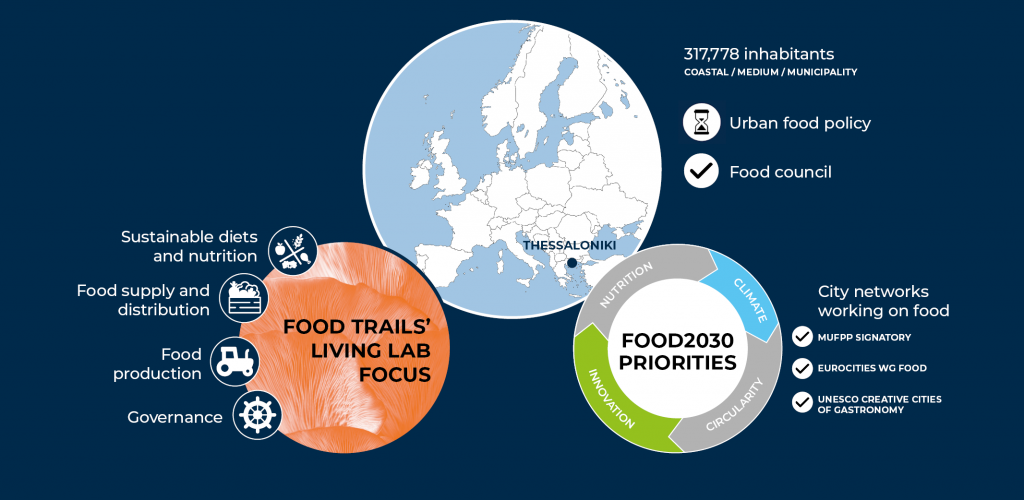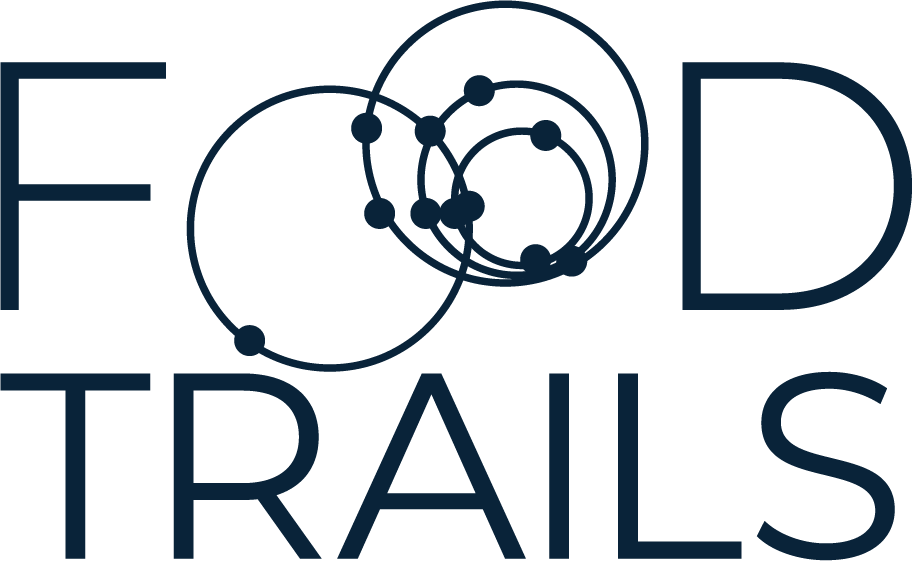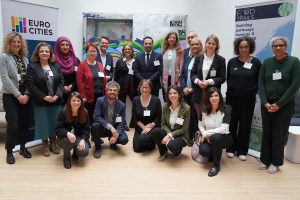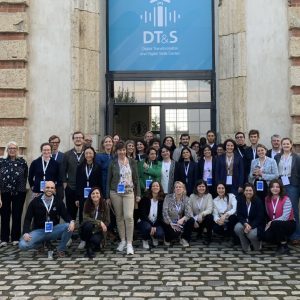
Once a great city of the Eastern Roman Empire, Thessaloniki is now a gateway to mainland Greece, the country’s second-largest city and a culinary capital.
Thessaloniki has been a signatory of the Milan Urban Food Policy Pact (MUFPP) since 2015 and has been awarded the title of UNESCO Creative City of Gastronomy. It launched the Thessaloniki2030 Strategy for local resilience, which sets out the need to work with diverse stakeholders, organisations, and municipal teams. The city has participated in EU-funded projects, such as Social Plate, which aimed to distribute unsold healthy fruit and vegetables or left over from markets to vulnerable populations.
Thessaloniki’s food actions focus on awareness-raising activities and the promotion of local products, for example, through the Thessaloniki Food Festival and the urban vineyard.
In Food Trails, the city will further develop these activities by creating an urban garden for educational purposes, fostering urban agriculture and developing a comprehensive food policy and a Food Council.
In Thessaloniki, the food system transformation starts in schools. The city’s pilot will build school vegetable gardens and pop-up kitchens, and through the Living Labs, the gardens will serve as a demonstration site and innovation hub for the education curriculum.
Concretely, the city will:
– change young people’s food habits while improving their curriculum and transferring the knowledge to their families and households;
– develop an integrated food policy with high stakeholders engagement and establish and institutionalise a Food Council as an official body. This Council will be divided into focus groups in charge of preparing food policy guidelines on multiple food-related topics.
Read more here.




